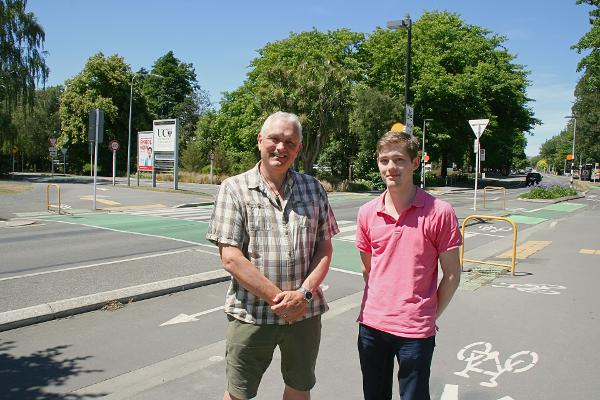Study shows cycleways better for house prices

A UC student research team have found that across Christchurch, for the median property, cycleways located within one kilometer increased property value by $1000.
At University of Canterbury (UC), Professor Simon Kingham runs the Research for Resilient Environments and Communities paper, where students are provided with an issue or question the community has raised. Students then work on the projects with local community groups and organisations to answer the research questions.
UC student Caleb Sullivan was part of a research team, that worked with a local planner to see what impact cycleways had on property prices. They then used an internationally recognised hedonic pricing model which figures out how different features of a house, like its size, location, or amenities, affect its overall price, using this model they found cycleways had a small positive effect on house sale prices.
Sullivan noted that those in real estate may not recognise the value of cycleways, “We interviewed a few local real estate agents and property developers who noted that cycleways were not something they considered as other factors, such as on-street parking, took priority,” however, when analysing property advertising material they found that this was a selling point listed for many properties on real estate and property sites.
The research has shown that the density of cycleways around houses is becoming a subtle but important factor for homebuyers who value active transport options and local connectivity.
“This study reinforces that cycleways are not a detriment to residential property values. Instead, they can be a selling point for some properties,” says Professor Kingham.
The team also analysed whether there was a price impact on houses who had lost parking for cycleways, however they found no significant correlation.
“This research contributes to a growing body of evidence that cycleways are an asset to urban areas, both economically and socially. These findings should encourage city planners and policymakers to confidently invest in cycleways as part of urban development strategies.”
